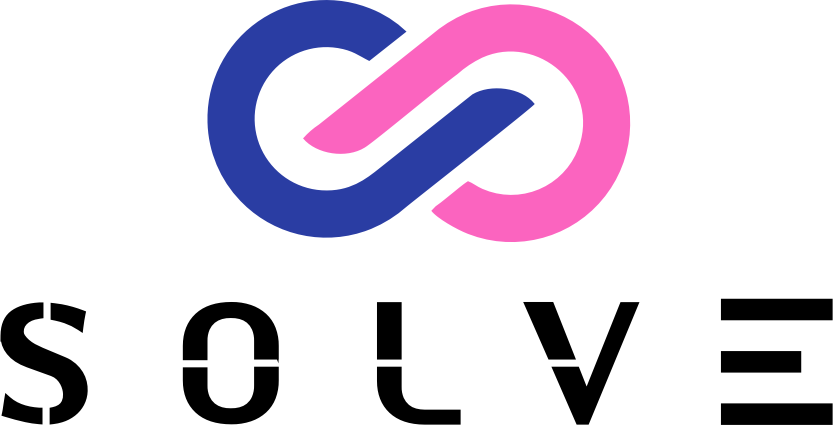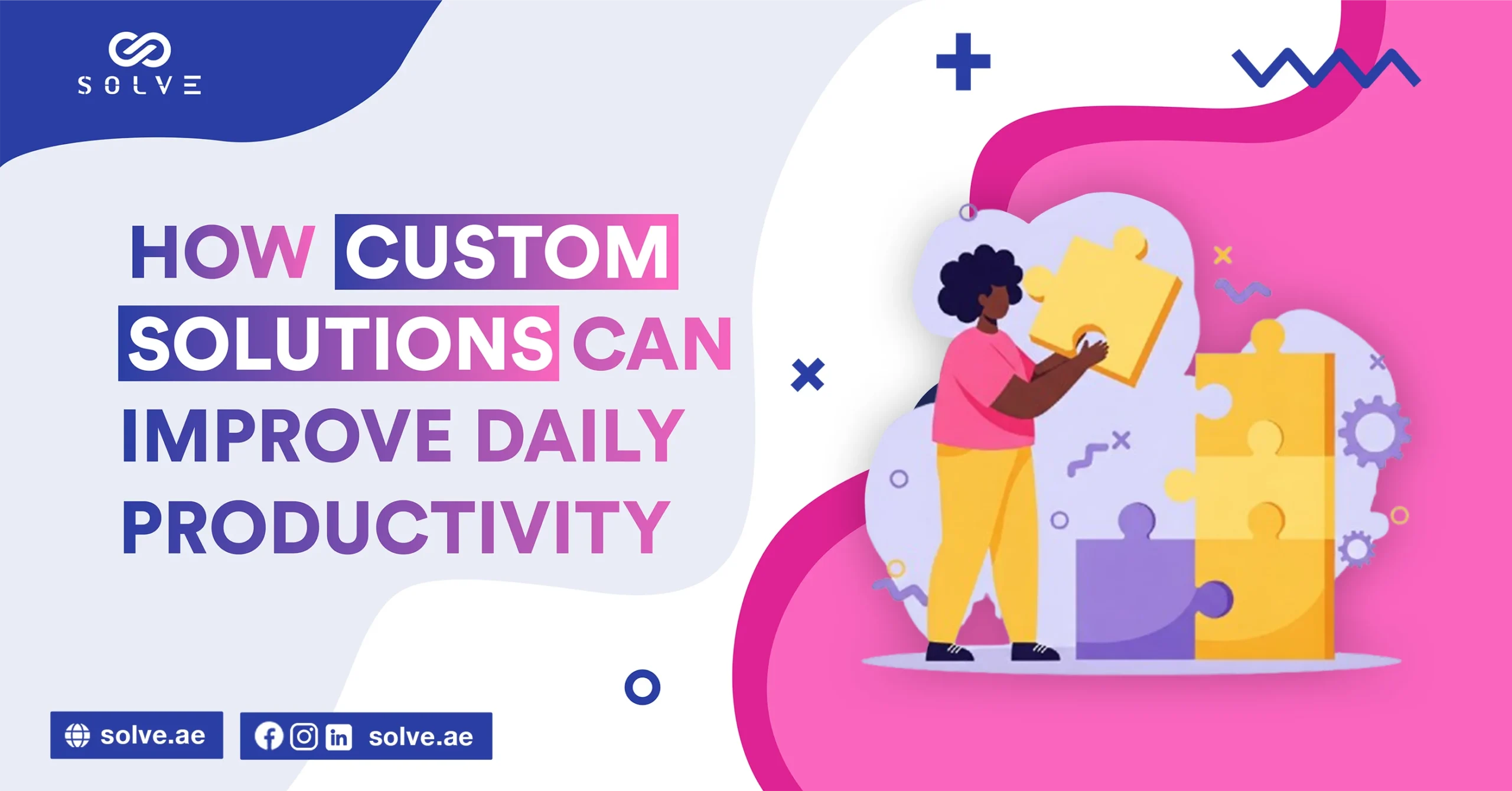- By Vanshika Choudhary
- April 12, 2025
The realm of productivity, or the measure of how effectively one uses time to accomplish goals, is today considered to be the bedrock of success for both people and organizations. While some use generic tools as measured against specific needs or unique challenges, custom-made solutions directly address the challenges that are peculiar to each industry or organization. Customization represents a solution that has proven to be a remarkably strong method for enhancing productivity over everyday activity. This blog will discuss how custom solutions affect workflows, improve efficiency, and create long-term value.
What Are Custom Solutions?
Custom solutions include tools, software, or systems designed specifically for an individual or organization with unique demands. Off-the-shelf products ordinarily provide generalized features that address a broad audience. In contrast, custom solutions are built singularly to address specific problems or to optimize certain workflows. Thus, every one of their features and functionalities becomes relevant and useful, eliminating unnecessary complexity and, notably, improving user experience. One such example is an inventory management system that’s custom-built for a manufacturing firm, allowing real-time production data to keep accurate stock levels and effect solutions to the supply chain. Such focus on a specific need gives way to enhanced efficiency and effectiveness in the management of operations.
Key Benefits of Custom Solutions
-
Specified to Specific Needs
Generic instruments find themselves burdened with unneeded features while missing truly important functionalities. Custom solutions, made for specific individual needs, can be aligned to the organizational goals and workflows. Such alignment, therefore, means that every feature is created to address a defined problem or optimize a particular process, increasing efficiency and productivity. For instance, a healthcare provider may need a patient management system that takes care of all relevant processes, such as bringing medical records, billing, and scheduling systems together as one. By being specific with its needs, custom solutions eliminate the costs related to features never used by generic applications.
-
Streamlined Workflows
Custom solutions streamline workflows through the automation of repetitive tasks and the elimination of redundant ones. This reduces human error, saves time, and allows employees to focus on strategic activities. Examples include faster production cycles relying on automated machines to make quality checks and higher accuracy since machines can do this more consistently than humans. Furthermore, integrating custom solutions with various systems can create a buoyant information flow across departments, bolstering collaboration. Streamlined processes win more on fewer resources for the organization, and this boosts efficiency and lowers operating costs altogether.
-
Enhanced Customer Experience
Customized customer-facing solutions like personalized CRMs or communication platforms further improve client interaction and satisfaction. These solutions provide an understanding of customer behavior and the ability for businesses to develop services around the client so as to develop campaigns more effectively and achieve higher customer retention rates. For example, an AI-powered bespoke chatbot can provide a customer with instant responses tailored to his or her queries, thus encouraging more interaction and decreasing the requirement for support requests. The customer experience is improved, and businesses build this long-term relationship with customers for growth. Check out the latest blog post on Why Automation Matters in Customs Management.
-
Automating Routine Tasks
Automation is a big productivity driver. Custom solutions can automate some of these routine tasks—scheduling a lot for an employee—such as data entry or even reporting so that these people can focus on really strategic activities. Automation eliminates errors and saves time so that organizations function more efficiently and more effectively. For instance, because stock levels are always accurate and replenished in time, this helps automate inventory management, which saves on waste and decreases operational costs. Businesses can thus use this resource for initiatives on innovation and growth, which were formerly set aside for routine tasks.
Long Term Benefits
- Cost Saving
Although they may include an upfront investment, custom solutions pay off in terms of their ability to eliminate inefficiencies and unnecessary costs. During automated task performance and streamlining workflows, transactional costs move down while resource allocation improves. An example is that of waste reduction and operating costs through the automation of an inventory management task. This is attributable to the fact that stocks are always accurately available and replenished in time. In addition, custom solutions can save the cost of fitting generic tools into the company’s ways through adaptation, like huge customization or integration efforts.
- Competitive Advantage
Business-unique custom solutions make them very different from the competition using generic tools against another. Such businesses can thus innovate faster and respond to market changes more effectively. Take, for instance, the early adoption of some automation strategies into Netflix’s operation such that it could readily scale its operations while delivering high customer satisfaction. This gave the company a head start in competition in the streaming market. With custom solutions, businesses would thus be creating differentiation and, ultimately, a strong market presence.
- Continuous Improvement
Because such solutions are often customizable, based on an array of user features as well as user needs, they can change with time. Therefore, they remain relevant and beneficial even in the long run because new features can always be integrated into them as the need arises. Continuous improvement might also mean that an organization can improve by adopting new technologies or process flows without interrupting current operations. A custom CRM, for example, would attach itself with AI-driven insights to move ahead of the trends and preferences of customers.
Real-World Illustration
Machine Learning in Quality Assurance Application
Manufacturing companies apply machine learning software for defect identification during production cycles and to minimize the number of defects while increasing efficiency by allowing only high-quality products out into the market. This further enhances product quality but does not save costs related to reworks or recalls.
Custom CRM Application
This is the case with a retail chain, which has developed its own customer relationship management (CRM) system to detail real-time insights of customers and send personalized marketing messages aimed at increasing sales. The system joins customer data from varying interaction points and gives the business a complete view of behavior and preferences. With this information, the company can then run targeted marketing campaigns to segment customer groups in order to increase reach and conversion.
Challenges with Off-the-Shelf Solutions
Generic tools might not cover some of the following:
No Customization: Although it may be possible to customize it somewhat, it usually falls short of the customized demands of the business processes.
Poor Integration: Sometimes it becomes very difficult to join a working use of some generic tools with the existing ones, resulting in data silos and ineffective processes.
Too Many Features Irrelevant to Any Particular Business Needs: The number of features that do not serve any useful purposes for the particular aforementioned companies will clutter and confuse.
Conclusion
The company revolution is productivity, in that custom solutions bring personalized tools according to the organization’s particular needs. From streamlining workflow to boosting employee efficiency and satisfaction among consumers, these custom systems produce great value at once and in the future. Therefore, contact us, as it is folly to judge custom solutions only in terms of improved productivity: they build a foundation for sustainable growth, flexibility, and competitiveness even in the most altering environments of markets. Therefore, custom solutions offer organizations a way to differentiate themselves in their line of work for their product or service innovations to happen faster than the competition. In the long run, their success will be sustainable.




